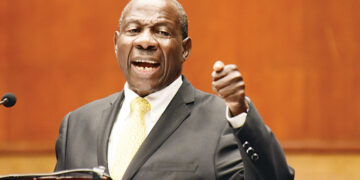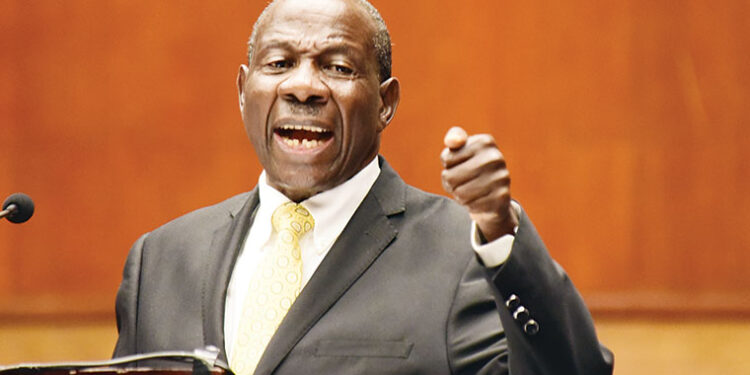By Ebi Kesiena
In an effort to manage its rising debt, Uganda plans to limit commercial borrowing and focus on concessional loans in the next fiscal year, Finance Minister Matia Kasaija announced on Thursday. This strategy follows a credit rating downgrade by Moody last month, which highlighted the country’s constrained financing options.
Uganda’s public debt has been escalating due to extensive infrastructure projects under President Yoweri Museveni’s administration. At the end of last year, the nation’s total public debt stood at $24.7 billion, with projections showing an increase to $25.7 billion by the end of this month, Kasaija revealed during his budget speech.
Debt service costs, excluding domestic debt redemptions, are expected to consume 40.3% of domestic revenue in the upcoming fiscal year starting in July, up from 33.4% in the current year. Despite this, the Ugandan government maintains that borrowing has fueled economic growth, which has outpaced that of many African peers since the COVID-19 pandemic.
Economic growth is anticipated to be between 6.4% and 7% in the next fiscal year, driven by oil and gas activities ahead of planned crude oil production starting in 2025/26. However, the budget deficit is projected to rise to 5.7% of gross domestic product (GDP), up from 4.5% this year.
“Uganda’s economy has fully recovered from the various external and internal shocks that impacted performance in the past four years,” Kasaija stated. The government’s budget for the next fiscal year is set at 72.1 trillion Ugandan shillings ($19.4 billion).
Key infrastructure projects include the construction of a $2.2 billion standard gauge railway to reduce international trade costs and the $5 billion East African Crude Oil Pipeline to facilitate oil exports via Tanzania.
The government’s commitment to focusing on concessional borrowing aims to curb the debt build-up while continuing to drive economic growth through strategic investments in infrastructure and the oil sector.




































